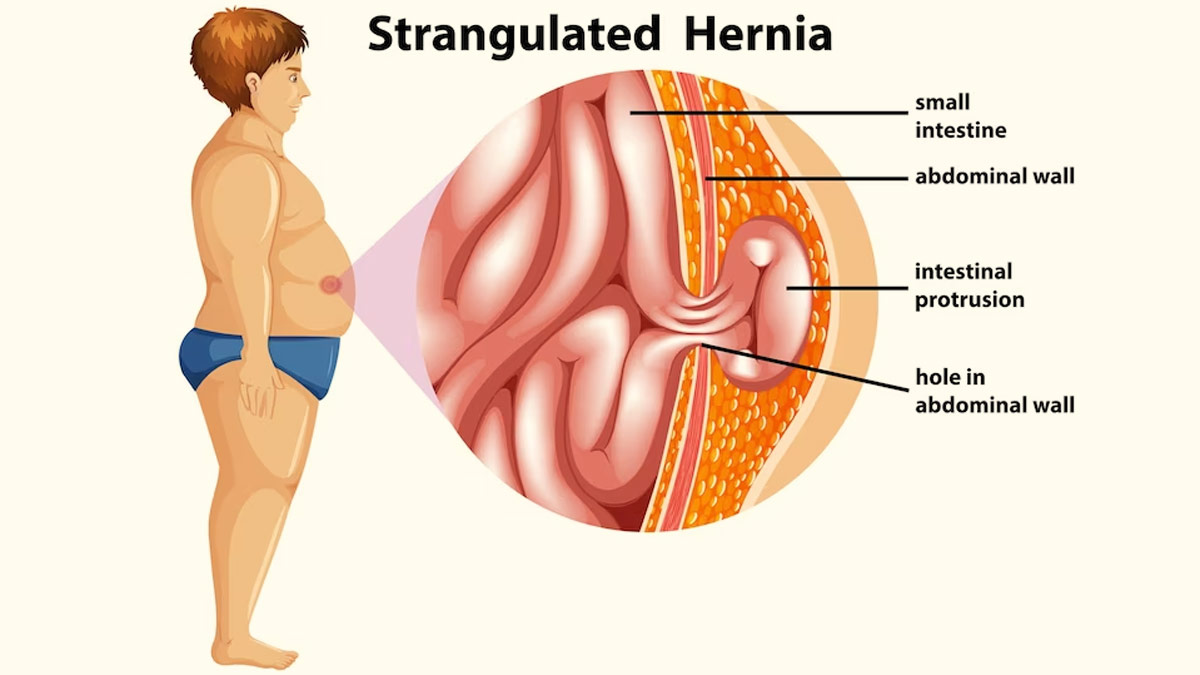
Bloating is a common and uncomfortable sensation that many people experience at some point in their lives. While bloating can result from various factors, including diet and digestive issues, some people may wonder if it could be a sign of a hernia.
Table of Content:-
What Exactly Is Hernia?
“If you wish to slow the progression of an existing hernia, you must first comprehend it. It is a protrusion of abdominal tissues caused by weak muscles or a weakened scar from a prior surgery or the umbilicus. If adequate steps are not taken in the early stages of a hernia, this increases over time,” said Dr Arvinder Singh Chillana, Director -General Surgery, Fortis Hospital, Shalimar Bagh.
This can lead to a visible bulge or lump, and it is often accompanied by discomfort or pain. Hernias can occur in different parts of the body, but some of the most common types include groyne hernias, umbilical (belly button) hernias, and hiatal hernias (which affect the diaphragm).
Bloating and Hernias
Bloating is the feeling of fullness and abdominal distension, which can be caused by the accumulation of gas in the digestive tract or other factors like overeating or consuming gassy foods. While bloating is a common digestive issue, it is not typically a direct symptom of a hernia.

Hiatal hernias occur when a portion of the stomach pushes through the diaphragm into the chest cavity. This type of hernia can sometimes cause symptoms such as heartburn, regurgitation, and a feeling of fullness or bloating after eating. In this case, bloating may be a consequence of the hernia's impact on the normal functioning of the stomach.
Indirect Symptoms
Bloating is not a primary or direct symptom of most hernias, but the discomfort and pain associated with hernias may lead to changes in eating habits or digestive issues that, in turn, can result in bloating. For example, if a person with an inguinal hernia experiences pain or discomfort when they eat, they might eat less or make dietary choices that cause bloating.
When to Seek Medical Attention
If you are experiencing unexplained and severe bloating, it's essential to consult a healthcare professional. While bloating is not typically a sign of a hernia on its own, it can sometimes be a symptom indirectly related to an underlying hernia, or it may signal other gastrointestinal issues that require evaluation.
Also read: Hernia in Children: Symptoms, Risks & Treatment
Important Precautions
“Avoid meals that generate gas since gas raises abdominal pressure, which is bad for hernias. Not only that, but digestive disorders such as constipation can put strain on the abdomen and aggravate hernias,” said Dr Singh, adding, to improve digestion and prevent constipation, patients should eat a nutritious, fibre-rich diet, drink lots of water, and exercise on a regular basis. You might seek the advice of a qualified dietitian in this regard.
If you suspect a hernia due to the presence of a visible bulge, persistent discomfort, or changes in your bowel movements, it's important to seek medical attention promptly. Hernias can potentially lead to complications if left untreated, and early diagnosis and intervention are key to managing and addressing them effectively.
While bloating is a frequent digestive problem, it is not always an indication of a hernia. Certain hernias, such as hiatal hernias, may, however, indirectly lead to symptoms like bloating. If you are concerned about bloating or suspect a hernia, you should see a doctor for an accurate evaluation and diagnosis. Early detection and appropriate medical care are critical for effectively addressing any potential health issues.
Also watch this video
Read Next
Are You Taking Your Vitamins Correctly? Common Mistakes People Make While Taking Supplements
How we keep this article up to date:
We work with experts and keep a close eye on the latest in health and wellness. Whenever there is a new research or helpful information, we update our articles with accurate and useful advice.
Current Version